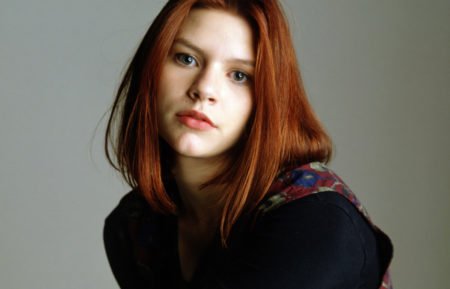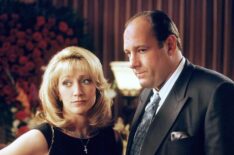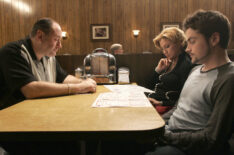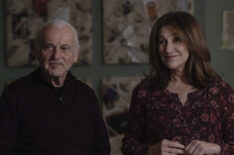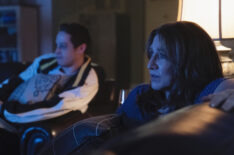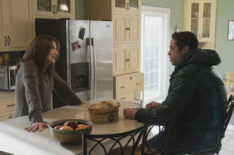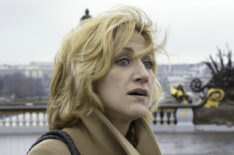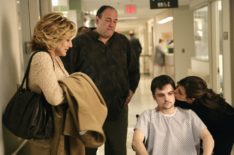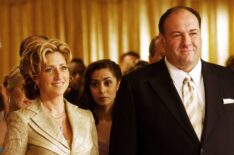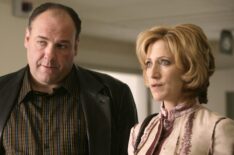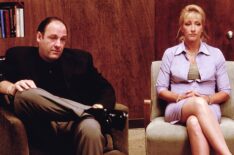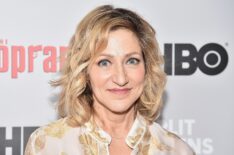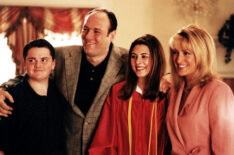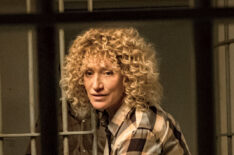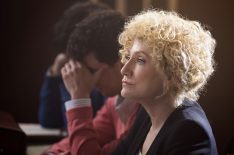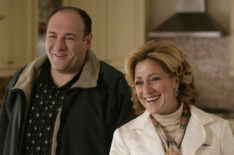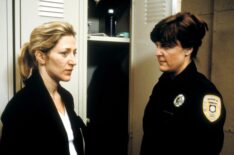Edie Falco
Credits

Avatar: Fire and Ash
Actor
General Ardmore
Movie
2025
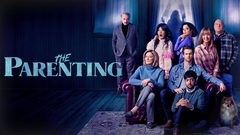
The ParentingStream
Actor
Sharon
Movie
2025

The Sapranos
Actor
Show
2024

BupkisStream
Actor
Amy Davidson
Series
2023

Live with Kelly and MarkStream
Guest
Talk
2023

Shooting the Sopranos
Actor
Show
2023
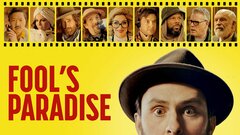
Fool's ParadiseStream
Actor
The Fool's Agent
Movie
2023

I'll Be Right There
Actor
Wanda
Movie
2023

I'll Be Right There
Executive Producer
Movie
2023

Avatar: The Way of WaterStream
Actor
General Ardmore
Movie
2022

Impeachment: American Crime StoryStream
Actor
Hillary Clinton
Miniseries
2021

Money Explained
Narrator
Show
2021

Tommy: Extras
Actor
Show
2020
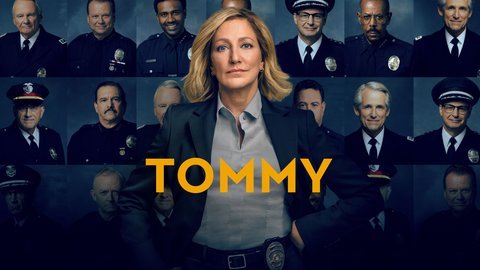
TommyStream
Actor
Abigail "Tommy" Thomas
Series
2020

Tamron HallStream
Guest
Talk
2019

Today With Hoda & Jenna
Guest
Show
2019

Today 3rd Hour
Guest
Show
2018

PeopleTV Specials
Guest
Show
2018

Viper Club
Actor
Charlotte
Movie
2018

Every Act of Life
Self
Movie
2018

The Land of Steady Habits
Actor
Helene
Movie
2018

Night of Too Many Stars: America Unites for Autism Programs
Actor
Show
2017

Law & Order True Crime: The Menendez MurdersStream
Actor
Leslie Abramson
Docudrama
2017

Megyn Kelly Today
Guest
Talk
2017

Live with Kelly and Ryan
Guest
Talk
2017

Megan Leavey
Actor
Jackie
Movie
2017

Landline
Actor
Pat
Movie
2017

Outside In
Actor
Carol
Movie
2017

I Love You, Daddy
Actor
Movie
2017

Match GameStream
Guest
Game Show
2016

Celebrity PageStream
Guest
News
2016

AnimalsStream
Guest Voice
Series
2016
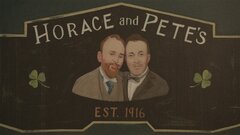
Horace and Pete
Actor
Sylvia Wittel
Miniseries
2016

The ComedianStream
Actor
Miller
Movie
2016

The Late Show With Stephen ColbertStream
Guest
Talk
2015

The Late Late Show With James Corden
Guest
Talk
2015

Variety Studio: Actors on Actors
Guest
Show
2014

Late Night With Seth MeyersStream
Guest
Talk
2014

The Tonight Show Starring Jimmy FallonStream
Guest
Talk
2014

Shelter Me: Second Chances
Host
Show
2014

Katie
Guest
Talk
2012

Live! With Kelly and Michael
Guest
Talk
2012

Dogs in the City
Guest Star
Show
2012

CBS This Morning
Guest
Show
2012

Impractical JokersStream
Guest Star
Reality
2011

LIVE with Kelly
Guest
Talk
2011

Anderson
Guest
Show
2011

Dr. Steve
Guest
Show
2011

Piers Morgan Tonight
Guest
Talk
2011

The Gayle King Show
Guest
Show
2011

ConanStream
Guest
Talk
2010

The Talk
Guest
Talk
2010

Who Do You Think You Are?Stream
Guest Star
Reality
2010

3 Backyards
Actor
Peggy
Movie
2010
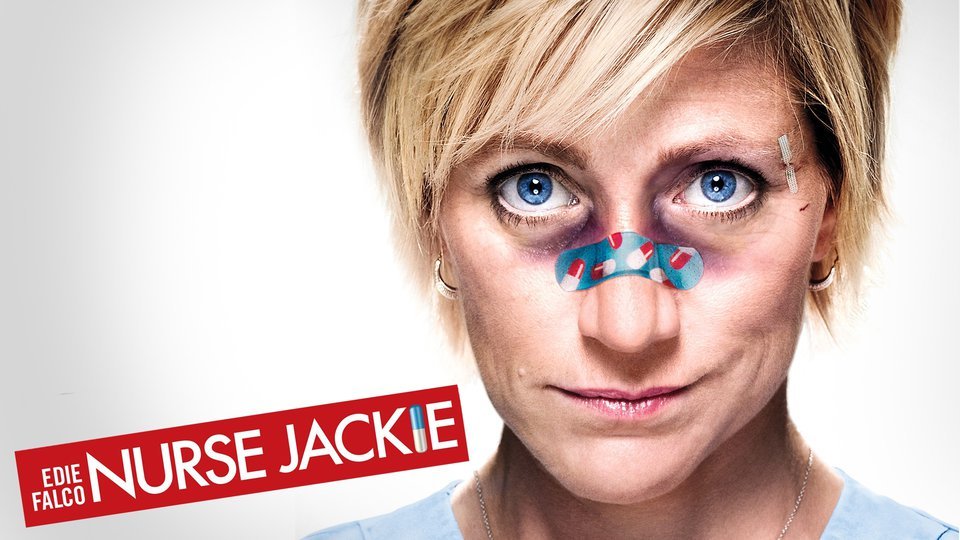
Nurse JackieStream
Actor
Jackie Peyton
Series
2009
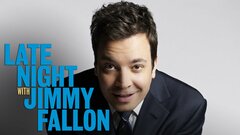
Late Night With Jimmy Fallon
Guest
Talk
2009

Today With Kathie Lee & Hoda
Guest
Show
2007

Chelsea Lately
Guest
Talk
2007

The Better Show
Guest
Show
2007

30 RockStream
Guest Star
Celeste Cunningham
Series
2006
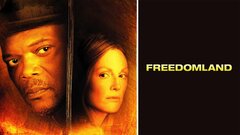
FreedomlandStream
Actor
Karen Collucci
Movie
2006

The Colbert Report
Guest
Talk
2005

The Late Late Show With Craig Ferguson
Guest
Talk
2005

The Great New Wonderful
Actor
Safarah
Movie
2005

The QuietStream
Actor
Olivia
Movie
2005

The Girl From Monday
Actor
Judge
Movie
2005

The Insider
Guest
Show
2004

Tavis Smiley
Guest
Talk
2004

The Ellen DeGeneres Show
Guest
Talk
2003

Jimmy Kimmel Live!Stream
Guest
Talk
2003

Sunshine State
Actor
Marly Temple
Movie
2002

Live With Regis and Kelly
Guest
Show
2001

Overnight Sensation
Actor
Festival Coordinator
Movie
2000

The Early Show
Guest
Show
1999

The Daily Show With Jon StewartStream
Guest
Talk
1999
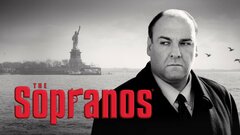
The SopranosStream
Actor
Carmela Soprano
Series
1999

The Sopranos FREE
Actor
Carmela Soprano
Show
1999

The Sopranos (With Audio Commentary)
Actor
Carmela Soprano
Show
1999

Judy Berlin
Actor
Judy Berlin
Movie
1999

Random Hearts
Actor
Janice
Movie
1999

Stringer
Actor
TV Producer
Movie
1999

Will & GraceStream
Guest Star
Deirdre
Series
1998

A Price Above Rubies
Actor
Feiga
Movie
1998

Blind Light
Actor
Diana DiBianco
Movie
1998

The View
Guest
Talk
1997
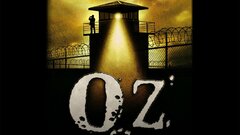
OzStream
Actor
Officer Diane Whittlesey
Series
1997

OzStream
Guest Star
Officer Diane Whittlesey
Series
1997

Hurricane
Actor
Joanne
Movie
1997

The Sunshine Boys
Actor
Movie
1997

Trouble on the Corner
Actor
Vivian Stewart
Movie
1997

Firehouse
Actor
Kate Wilkinson
Movie
1997

Cost of Living
Actor
Billie
Movie
1997

Layin' Low
Actor
Angie
Movie
1996

Breathing Room
Actor
Marcy
Movie
1996

The AddictionStream
Actor
Jean
Movie
1995
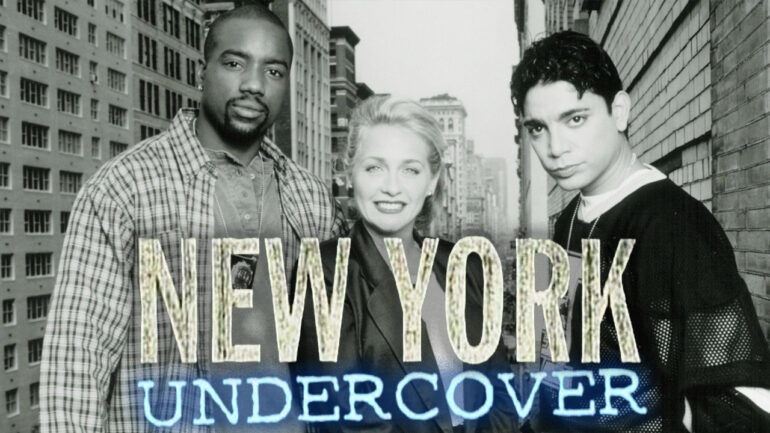
New York UndercoverStream
Guest Star
Series
1994

Late Show With David Letterman
Guest
Talk
1993
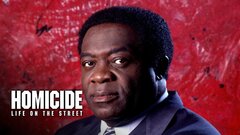
Homicide: Life on the StreetStream
Guest Star
Eva Thormann
Series
1993

Barrio sin Ley
Actor
Movie
1992

Laws of Gravity
Actor
Denise
Movie
1992

Law & OrderStream
Guest Star
Series
1990

Trust
Actor
Peg Coughlin
Movie
1990

Sidewalk Stories
Actor
Woman in Carriage
Movie
1989

Sesame StreetStream
Guest Star
Series
1969

Today
Guest
News
1952
News aboutEdie Falco

What the Emmys Red Carpet Looked Like 20 Years Ago: Jennifer Aniston, Brad Pitt, Mariska Hargitay & More (PHOTOS)
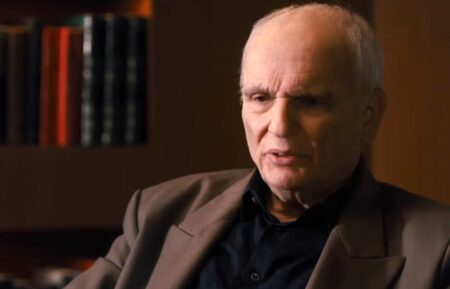
‘The Sopranos’ Documentary ‘WISE GUY’ Sets Premiere as HBO Unveils Trailer (VIDEO)
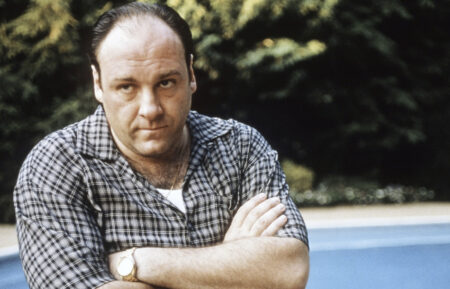
New Book on ‘The Sopranos’ Details James Gandolfini’s On Set Behavior & Personal Issues
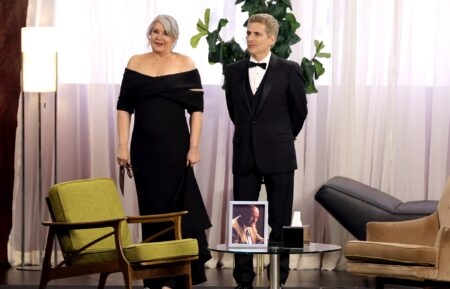
Emmys
Emmys Honor ‘The Sopranos’ 25th Anniversary With Special Reunion
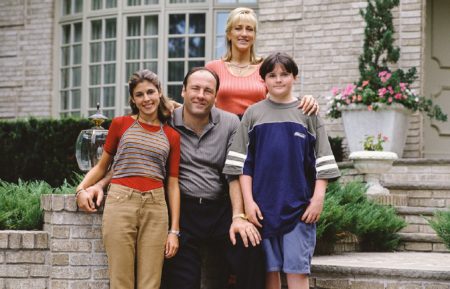
‘The Sopranos’: What It’s Like to Visit Tony’s Home & Mingle With the Show’s Stars
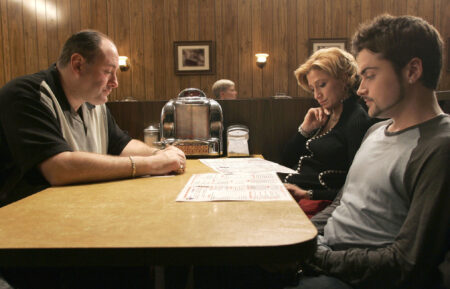
‘The Sopranos’ Turns 25: David Chase Sets Record Straight on Tony’s Final Scene
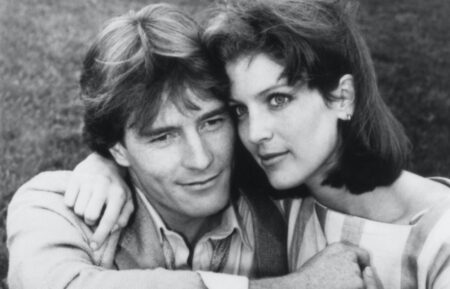
‘Loving’ Turns 40: 10 Famous Cast Members From the Soap Opera
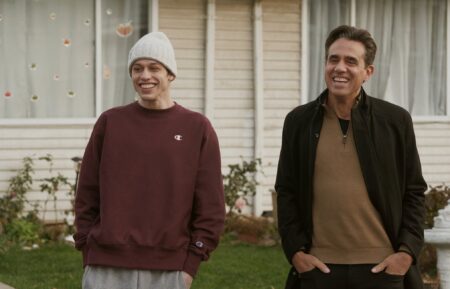
‘Bupkis’ Episode 2 to Air on NBC, Pete Davidson Comedy Is Also Streaming Now on YouTube
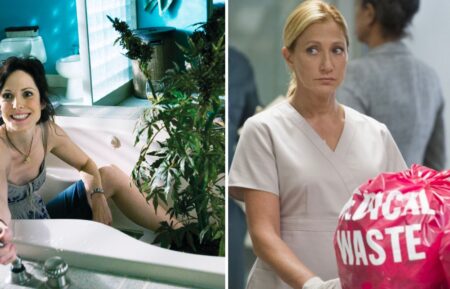
‘Nurse Jackie’ & ‘Weeds’ Sequels in the Works at Showtime
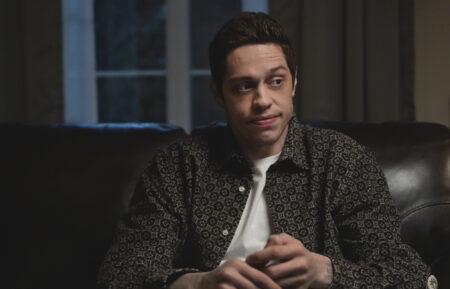
‘Bupkis’ Trailer Offers Look at Fictionalized Version of Pete Davidson’s Life (VIDEO)
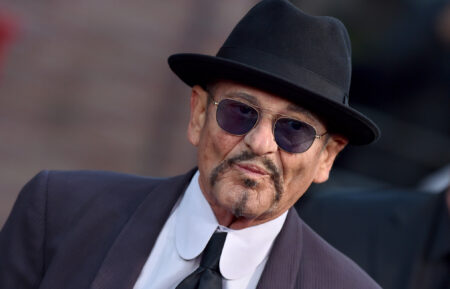
‘Bupkis’: Joe Pesci Returns to Acting in Pete Davidson & Edie Falco Peacock Comedy
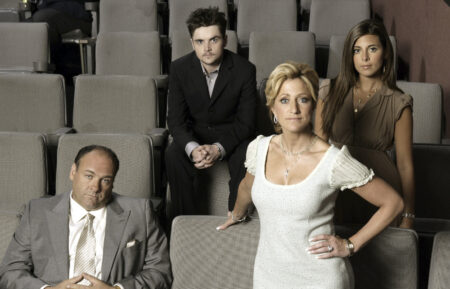
‘The Sopranos’ Ended 15 Years Ago: What Did Its Stars Do Next?
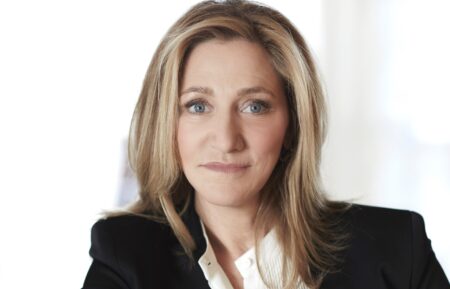
‘Bupkis’: Edie Falco Cast as Pete Davidson’s Mom in Peacock Series
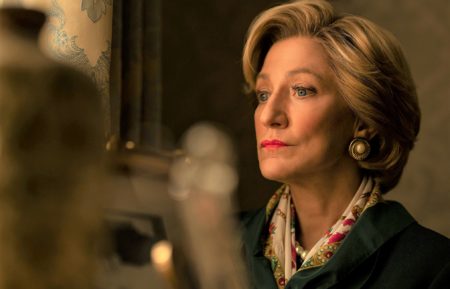
Spoiler Alert
‘Impeachment: American Crime Story’: 3 Things We Learned in the Premiere
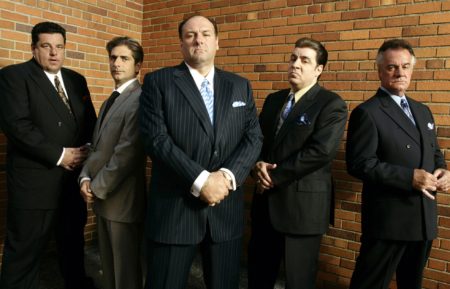
6 Reasons ‘The Sopranos’ Is Worth a Rewatch Right Now

How Well Do You Remember the 2011 Emmy Winners?

See the ‘Impeachment’ Cast in Character vs. Their Real-Life Counterparts
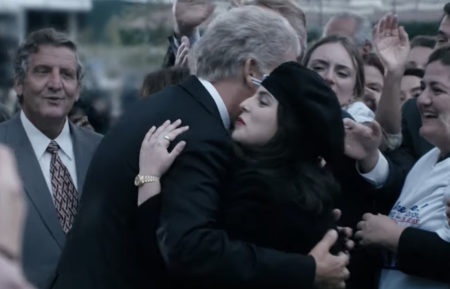
‘Impeachment: American Crime Story’: FX Releases First Official Trailer (VIDEO)
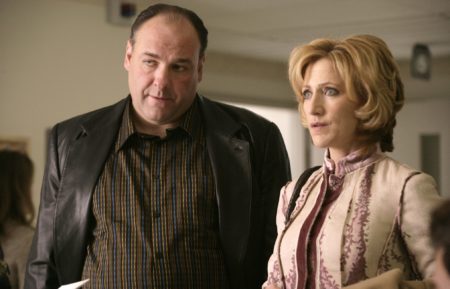
Edie Falco & James Gandolfini Reportedly Filmed a Secret ‘Sopranos’ Sequel

Edie Falco Cast as Hillary Clinton in FX’s ‘Impeachment: American Crime Story’
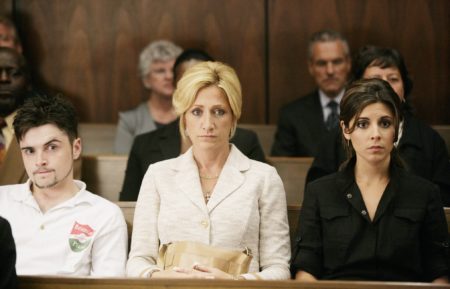
‘The Sopranos’ Cast to Reunite for Live Fundraiser Event
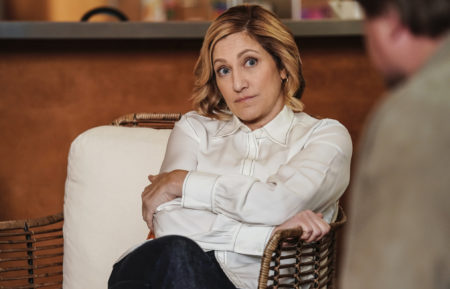
Thursday TV Ratings: CBS’ Just-Canceled ‘Tommy’ Wins Big With Finale
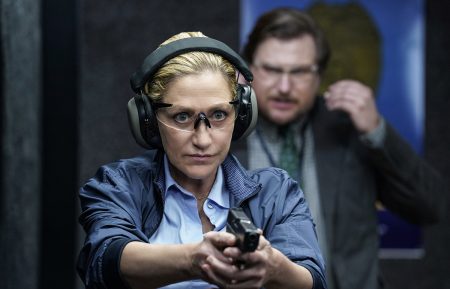
Preview
Edie Falco Teases ‘Tommy’s Trust Issues & Family Drama

Preview
Edie Falco Shares What’s ‘Refreshing’ About ‘Tommy’ (VIDEO)
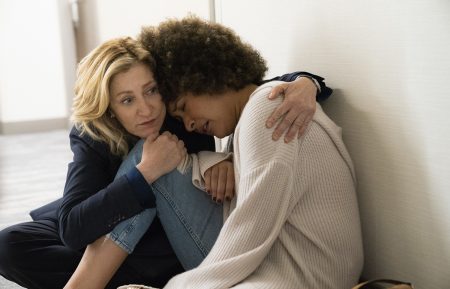
Review
Roush Review: Edie Falco Returns to TV as ‘Tommy’
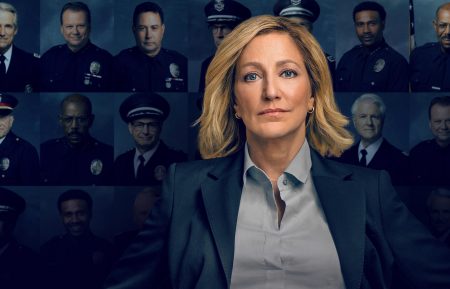
See Edie Falco as the LAPD’s First Female Police Chief in ‘Tommy’ (PHOTOS)
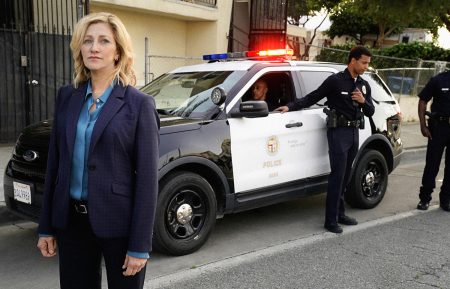
Q&A
Edie Falco on Why CBS’ ‘Tommy’ Brought Her Back to TV
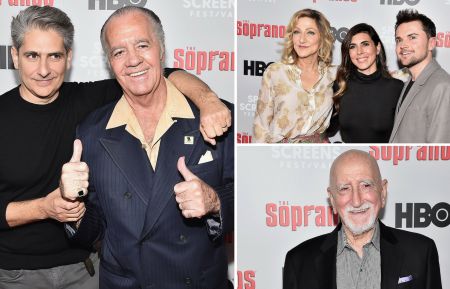
See the ‘Sopranos’ Cast Reunite for the 20th Anniversary (PHOTOS)
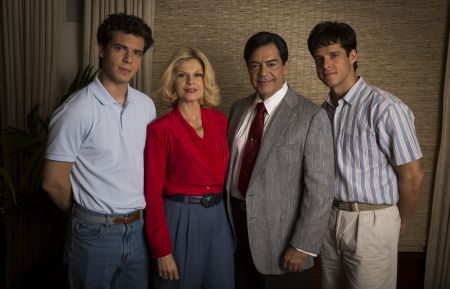
‘Law & Order True Crime: The Menendez Brothers’ Is ‘All Seven Deadly Sins in One Place’
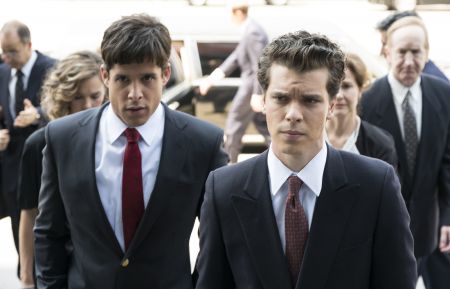
Roush Review: ‘Menendez’ Miniseries: Been There, Tried That
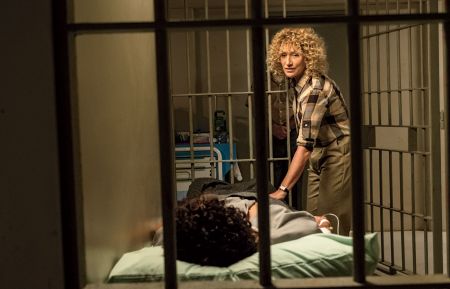
Fall Preview
Edie Falco on Playing Leslie Abramson in ‘Law & Order True Crime: The Menendez Murders’: ‘She’s a Hard Ass’

PaleyFest Fall TV Previews Event Adds Talent for ‘Menendez Murders,’ ‘Future Man’ and More
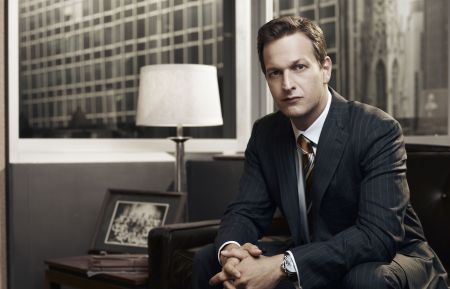
Josh Charles Joins ‘Law & Order True Crime: The Menendez Murders’ Cast
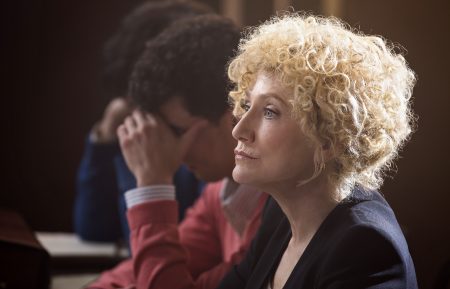
NBC Announces Fall Schedule, ‘This Is Us’ Grabs Post-‘Super Bowl’ Slot
